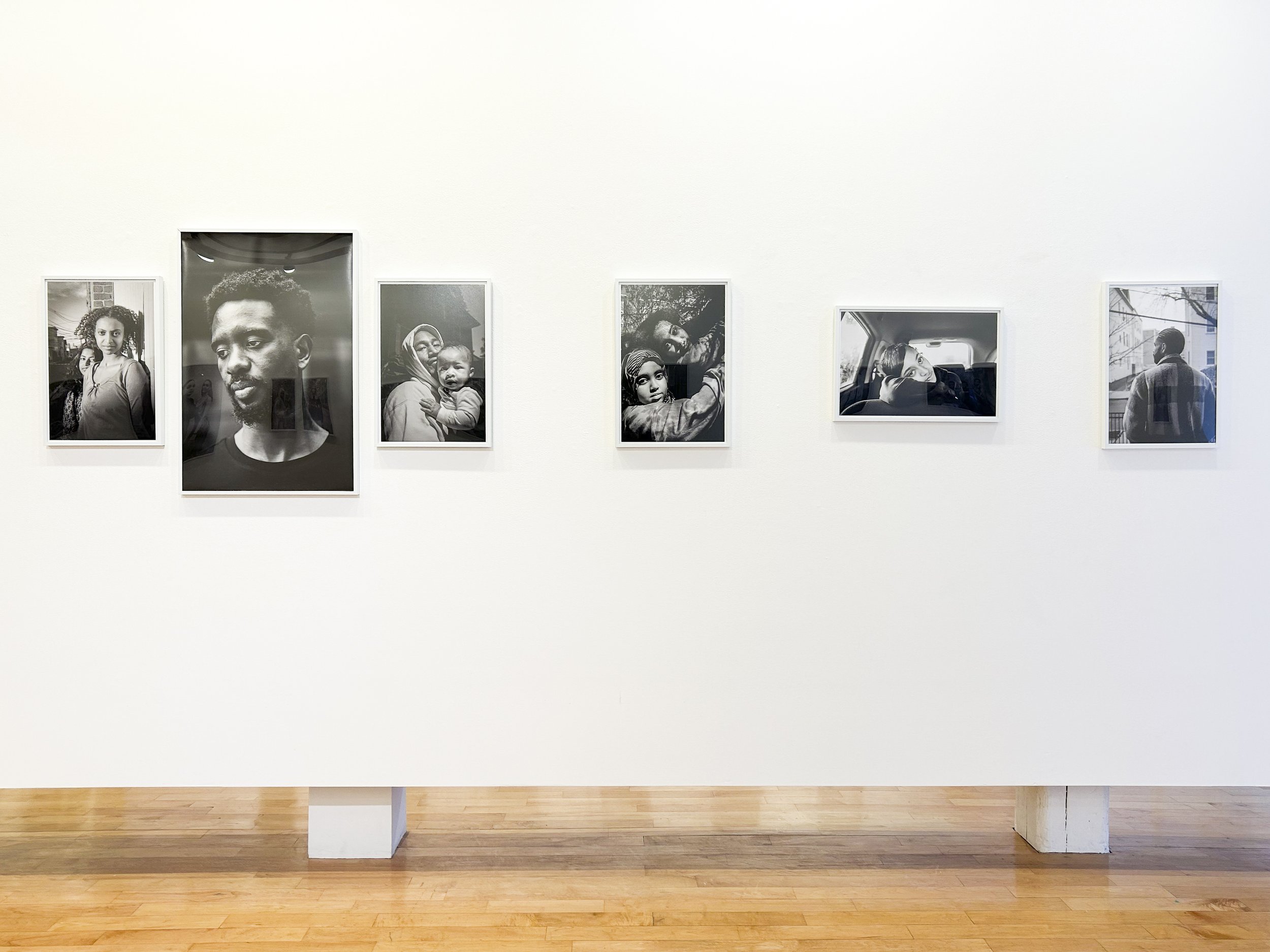What does it mean to exist in the shadow of an innovation economy? To live in one of the oldest intellectual capitals of the world – and see opportunity around every corner – but know that it remains just out of reach?
Cambridge, Massachusetts is now one of the top 25 innovation cities in the country and is known for incubating global tech companies and developing life-saving vaccines. While lower-income and working-class families have always struggled here, this tech-driven gentrification model is particularly invasive. It prioritizes wealth building for the financially secure and doesn't consider or incentivize equity .
This series is my response to watching the demographics of my city neighborhoods change, and seeing familiar and loved community spaces redefined by, and for, the benefit of the wealthy. Instead of investing in opportunity for all, replacement, displacement and cultural harm is the norm, as the existing digital, educational, and access gaps widen.
A saint, in its most simple definition, is an ordinary person who lives a courageous and good life, and because of this, is worthy of imitation.
Book of Saints is my way to venerate those most affected by these gaps – neighbors, family, friends, activists, artists, wordsmiths, musicians, city employees, students, the undocumented, and others, by making a visual archive of their portraits, and their disappearing, everyday landscapes.
They, like my own family, are most impacted by the overlooked consequences of an innovation economy, yet continue to create, hustle, love, learn and thrive in spite of it.
Jack Lueders-Booth | Inherit the Land
What has been produced, over these years of unprecedented access to the garbage dumps, tarpaper shacks, barrios, jails, back alleys, and forbidding canyons of this unknown boarder, is a vast and comprehensive image bank of pictures the likes of which have rarely been seen. Few have had the chance to penetrate the daily lives of their subjects so completely as had Lueders-Booth. His cameras have lived among the people he photographs, he has picked trash with them, baptized their babies, played with their children while their mothers cook meals gleaned from the trash dumps in the hills. – Luis Alberto Urrea.
These photographs were taken between 1990 and 1998 in the barrio settlements that surround the landfills that are the municipal dumps of Tijuana, Mexico.
Cheryle St Onge | My Mother My Atlas
My Mother My Atlas is a photographic exchange, portraiture, of the energy of life— the give and take of the familial between mother and daughter who lived side by side on the same New Hampshire farm for decades. Our love was mutual and constant. In 2015 my mother developed vascular dementia, and with that began the loss of her emotions and her memory and the relationship of mother and daughter as we had known it for nearly 60 years.
In my mother’s earlier life, she was a painter and then in more recent decades she began to carve birds. A carving would begin with her vast knowledge of birds, her research and then after whittling away at chunks of wood. My mother would eventually offer up an exquisite painted out chickadee or barred owl, life size and life like. I began to photograph her with any camera in reach—an iPhone or an 8x10 view camera as a distraction from watching her fade away, as a counterbalance to conversation with her about death, as a means to record the ephemeral nature of the moment, to find some happiness and light, and to share the images with others we loved.
Because of the dementia, my mother and I no longer had conversations. But we did still have a profound exchange through photography. She must have recalled our history and the process of picture making because she brightened up and was always eager and willing to be photographed. My mother did her best and I did mine. And then in turn, I offered up the pictures away to anyone who would look. It was an excruciating form of emotional currency.
My mother died at home On Oct 3. 2020. Time has been excruciatingly measured by that loss. Days into months to reflect on the passing of time, sans her, measured out within a snowy winter bird count, a summer witnessing the gold finch and wrens eating from the fruit laden shrubs in her backyard, fall afternoons watching migrating birds pause at her bird bathes and feeders. The expanding and the contracting of time with hope and longing for some semblance of her anywhere.















